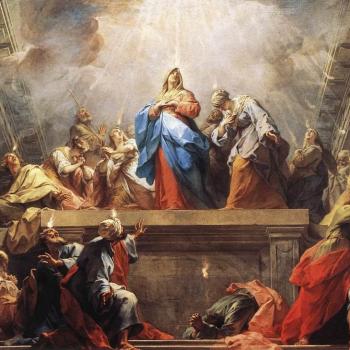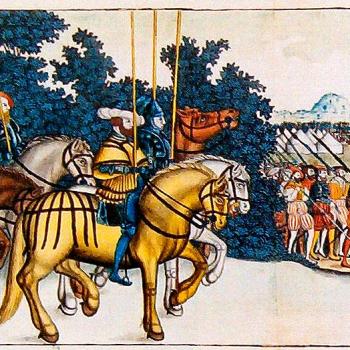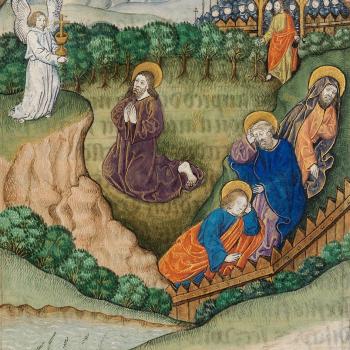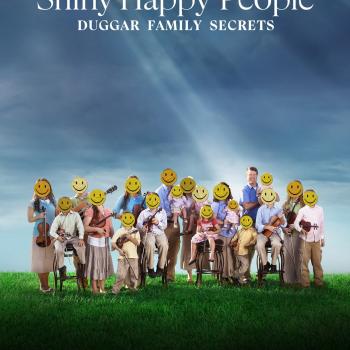Hilary Sherratt, an alumnae of Gordon College and a guest blogger for this post, was a participant on Professor Tal Howard’s recent trip to sites of the Protestant Reformation in Germany. His own reflections on this trip appeared in an earlier blog, “The Incombustible Martin Luther.”
Whither Martin Luther? Whither Christian Unity? – Ecumenical Purpose in 2017.
Picture a coffee shop along the main street in Wittenberg, Germany, a group of Americans perched on seats in a back corner. We are six Christians in former East Germany with a mission to seek out the meaning of Protestantism in age when the vast majority of Protestants live in the Southern Hemisphere, and there are more Anglicans in Uganda than in England, and 30,000+ denominations have spread the Gospel farther and wider than the Reformers likely imagined.
But as soon as we begin, we discover that the Reformation is a mind-boggling knot of political, theological, and historical threads. We ask why Luther was more “successful” than other Catholic reformers–and in creep the historical contingencies. Luther’s movement caught on in part because princes in the Holy Roman Empire saw the activity in Wittenberg as an opportunity to expand their political powers. The Augsburg peace of 1555 brought a new phrase – cuius regio, eius religio – whose realm, his religion – and forever changed the shape of Western Christendom. The more we learned about the early years of the Reformation, the harder it became to ignore the historical counterfactuals. Had Martin Luther’s critiques been read by a more sympathetic papal eye, had Frederick, Elector of Saxony, not chosen to hide Luther in Wartburg Castle…what then? Evidence points to the contingency of the Reformation, to its fragile dependence on place and time. Reform, we could claim, was in the air, but Reformation as such is another question.
Protestantism sometimes has fashioned itself as a refounding of Christianity. But our travels and the very good histories of these events suggest this view is naïve at best – Protestantism’s founding is as much a chaos of political, ecclesial and social upheaval as it is a return to first principles.
We are approaching the quincentennial commemoration of the Reformation. Commemoration itself shapes our memory and our understanding of the events. We have choices to make in 2017, as institutions, as individuals, and as one Body of believers. I want to encourage us in two directions:
1. An essential part of this commemoration must be ecumenism and reconciliation.
2. That reconciliation does not mean dissolving denominations.
The very name Protestant betrays a part of our purpose in commemoration. Protestant merely means protestor; one who objects to something. When we reflect on the Protestant Reformation, we reflect on the protest. One night after a long journey to and from Erfurt and Eisenach, near Wartburg Castle, our group gathered around tankards of Lutherbier to read the 95 Theses aloud; to give voice again to the first protest. It is remarkable to realize how much of Luther’s energy and hope is in returning the Church to its truest practices. His protest is over the false gospel of indulgences as the key to salvation; in thesis 43, Luther proclaims, “Christians should be taught that one who gives to the poor, or lends to the needy, does a better action than if he purchases indulgences.” His is a deeply pastoral protest, one driven by concern for the right teaching of the Gospel and the protection of the Body of Christ in the world. Given this original purpose, we must, in commemorating the event, draw one another back to the table.
But the proper end of ecumenical dialogue ought not to be the emergence of one common denomination. We oughtn’t to seek to make Methodists Anglican, Baptists Catholic, or Pentecostals Eastern Orthodox. Are we tasked with the pursuit of unity? Yes, for as Christ said, “I do not ask for these only, but also for those who will believe in me through their word, that they may all be one, just as you, Father, are in me, and I in you, that they also may be in us, so that the world may believe that you have sent me” (John 17.20-22). Christ prayed for a Trinitarian kind of unity – a diverse unity. What is more, Christ asks for unity of purpose. His prayer is directed – so that the world may believe that you have sent me. We must draw nearer to each other in fellowship so that the world might know Jesus.
Protestants in 2017, reflecting on their beginnings, might imagine what it means to be brethren with the Catholic Church. In the Second Vatican Council, the Catholic Church revised its attitude and posture toward the Protestant churches, calling them “separated brethren” in the Decree on Ecumenism, Unitatis Redintegratio. It will not be sufficient either to long for the emergence of one practicing Church or to become apathetic in the face of disagreement and adopt a posture of relativism. For Christ has called us to unity and has planted in us the seeds to make such unity possible. The movement of the Holy Spirit has guided the Church through the ages, has revealed Christ in the astounding diversity of His Body, the Church. That Spirit which presided over the emergence of the canon, the creeds, and the councils, that Spirit which prompts me in 2013 to urge new (and different) ecumenical dialogue as we approach 2017, is the same Spirit which He promised to send us in the Gospel according to John. While much can be made of the historical accident of Protestantism, and new effort expended to drawing Christ’s Body together, we do not believe the Spirit to be absent even from such floundering human proceedings. Let that mind be in us, also.
Ecumenism in 2017 should not look at the Reformation as a tragedy to undo, even while recognizing in it human fallibility along with doctrine. In our commemorative and ecumenical work, we should instead give thanks. The Spirit of God is living and active in the Church. Indeed, as we six Americans journeyed back to our respective denominations and churches after our search for Luther and the Reformation, we took with us more appreciation for the complexity and diversity engendered by the difficult gift of the Church.
As we look ahead to 2017, may we be one in heart and purpose after God, that the world may know the One to whom all honor, glory and power are due, now and ever, and unto the ages of ages.
Hilary is a 2012 Gordon College graduate, where she majored in Religion, Ethics and Politics. She hopes to attend graduate school soon to study history and philosophy. She blogs at The Wild Love and tweets at @hilarysherratt.












